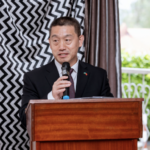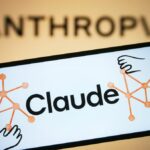…Says 20% of participants have used drugs previously
By Chioma Obinna
A new Nigerian study has shown that the HIV testing rate among young Nigerians has risen from 7 per cent to 80 per cent in two years using HIV self-testing kits.
Researchers who carried out the study at the Nigeria Institute of Medical Research, NIMR, in collaboration with Washington University and the University of North Carolina, found that 20 percent of young Nigerians have used drugs at some point in their lives.
Speaking during the 4 Youth By Youth‘s Close-Out celebration in Lagos, the Director of Research at the NIMR, Professor Oliver Ezechi, who is also the Personal Investigator of the study – Innovative Tools to Expand HIV Self Testing (ITEST) regretted that HIV was raging among the country’s youth population. Ezechi cautioned that without proper control, Nigeria’s future is at risk because of lack of control of over 65 million youths.
He said the study began in 2018 with funding by the National Institute of Health, to investigate increase of HIV self-testing uptake among Nigerians. He said the youth through a crowd-sourcing contest, revealed to researchers that preferred an HIV self-tester, “one they can test in the privacy or comfort of their homes.”
Ezechi said that 60 youth research facilitators in 32 local governments across Nigeria enrolled in the study, with over 90 percent of participants followed up for 24 months.
“We’re also happy to mention that now the HIV self-testing is in the guideline of the country and then become part of the national guideline. When we started, it was not in the guidelines. It is now in all pharmacies and chemists, you see HIV self-testing everywhere.
“At a point in time when we started, it was only one test available in the country and it was as expensive as N15,000. Now, you can get kits as low as between N1, 500 to N2, 000. So that’s what this project has done.”
He said the study highlights the importance of HIV testing, as people prioritise positive outcomes over negatives. “It’s crucial to maintain positive results and link those with treatment. Nigeria’s efforts focus on controlling adults, but new infections are arising in young people due to risk-taking behaviours.
“In this study, we found out that more than 20 per cent of the young people who enrolled have used one drug or the other. So if we see these as the drivers, when a young person is using drugs, it’s likely to impact safe sex. So this is a potential for HIV transmission. So this is the population that we need to focus on.”
Ezechi emphasised the importance of youth-driven, inspired, and implemented youth-driven programmes for young people.
“We now have youth ambassadors, almost in all the states. So we are going to use these same youth ambassadors to try and sustain the momentum of what we’re doing, telling them the need for safe sex practices, the need to test for HIV, seek treatment, support us and also to support one another. And they need to not indulge in drugs that may mask or that may encourage HIV transmission.”
Prof. Juliet Iwelunmor, a Washington University professor, revealed in an overview that HIV testing in Nigeria was at the bottom five years ago, with one in five young Nigerians testing for the virus.
“Many young Nigerians have never heard about HIV self-testing, which was confirmed when we started our study. At baseline, only about 7 percent have even ever tested using HIV self-testing kits. And so now, after following them for two years, testing rates are as high as over 80 per cent.”
The ITEST project suggests Nigeria’s goal of an AIDS-free generation by 2030 could be achieved by increasing awareness among Nigerian youth about their HIV status and linking those living with HIV to care..
She said the unexpected findings of the high use of drugs during the study with 20 percent of the youth participants were a ticking time bomb if no one began to pay attention to it.
The Director General, NIMR, Prof Babatunde Salako said it was important to involve the youths in projects that concern them as they have innovative ideas.
On her part, the Chief Executive Officer, of Lagos State AIDS Control Programme, Dr Folakemi Animashaun who said the ITEST was a youth and community-driven programme described it as inspiring.
“The research was about three years, and then it’s a randomized controlled trial study, which involves a large number of youths, about 8,000 youths across Nigeria.
“So, for Lagos State, we are going to adopt the findings and we are going to implement them and also ensure the sustainability of the projects,” Anijmashaun said.
The National Agency for the Control, NACA, Principal Programme Officer, Dr Nom Cyprian, said the ITEST has been one of the projects that helped in HIV test self-testing, and in getting the best out of the youths and community in knowing their status.
He said adolescents and young people are also one of the main pillars of HIV prevention and to be able to achieve any of this self-testing must be encouraged.
The Director, of National Community and the Special Public Health, Federal Ministry of Health, Dr. Nwaokewuya Peter, stressed the need to properly engage the youth and support them to contribute to the response in achieving an HIV and AIDS free nation.
The post Our research shows young Nigerians embracing HIV testing — NIMR appeared first on Vanguard News.





